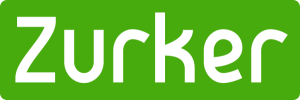Unless you’ve been hiding on the dark side of the moon, you know about Facebook’s IPO filing on Wednesday last week. Facebook shares are expected to sell like dim sum, and the latest figures from Wall Street put the company’s valuation at $94 billion. That’s some serious money!
Mark Zuckerberg, the founder, will come out of the IPO with a net worth of about $24 billion, and he won’t be the only one to gain billions.
Clearly, being the top dog in the social network niche is not a bad way to make money online. Not surprisingly, a number of challengers have come along and tried to unseat Facebook. You know about Buzz and Google+. Maybe you also remember Unthink and their sassy video. Despite causing a media stir, six months later the star of the clip remains firmly entrenched on Facebook, and Unthink barely gets any traffic.
Despite its anti-Facebook message, Unthink was based on exactly the same business model as Facebook: get venture capital funding ($2.5 million to be precise), use the funding to grow a userbase, and leverage that userbase into ad dollars.
In other words, business as usual.
 If you’re competing with Facebook, business as usual doesn’t cut the mustard. You’ll need something totally fresh – a brand new, innovative approach. This is why I’m keeping an eye on a brash new startup called Zurker. These guys received no funding at all from VC’s. All their funding comes from their members who invest small amounts, typically less than $100. In exchange, the members get equity in the form of “virtual shares” or vShares.
If you’re competing with Facebook, business as usual doesn’t cut the mustard. You’ll need something totally fresh – a brand new, innovative approach. This is why I’m keeping an eye on a brash new startup called Zurker. These guys received no funding at all from VC’s. All their funding comes from their members who invest small amounts, typically less than $100. In exchange, the members get equity in the form of “virtual shares” or vShares.
Members can also gain vShares by referring their friends to the project, and that is pretty clever.
Given the opportunity to own a slice of Facebook in 2004, who wouldn’t jump at the chance? It’s too late for that, but plenty of Zurker’s members seem to be buying the proposition that Zurker could become the next Facebook, and are enthusiastically evangelizing Zurker’s benefits on their blogs in an effort to amass more vShares. The energy from the member-owners has translated into growth and it shows in their traffic graph. But can a small startup, coming out of nowhere, seriously challenge a $94 billion behemoth?
Right now, that’s unlikely. Zurker has no mobile app, no web widgets, and no developer API. The interface is unique and smart, but a little clunky and unsophisticated. Zurker still has less than 5,000 members worldwide.
But Zurker founders – they call themselves custodians – make an intriguing point: back in 2004, MySpace was the dominant social network, and Facebook was an unknown little startup that came out of nowhere. Facebook had a deviously clever strategy for growth, namely exclusivity: Facebook became tres chic and desirable by restricting access to the elite at Harvard only, then to the Ivy League, then to US colleges in general, followed by US high schools and finally the masses. Zurker, meanwhile, have a completely different deviously clever strategy of their own: give members equity.
Zurker came out of private alpha testing on January 22, 2012. You still need an invite to get in, so here’s one from me.
I don’t know if these guys will really follow through and eat Facebook’s lunch. But if they do, remember you read it about it here first.
